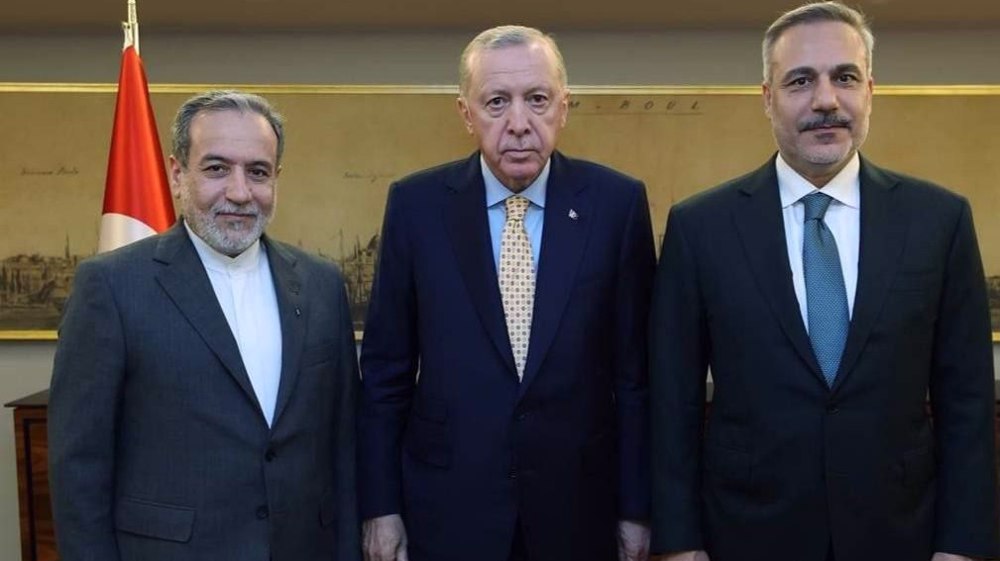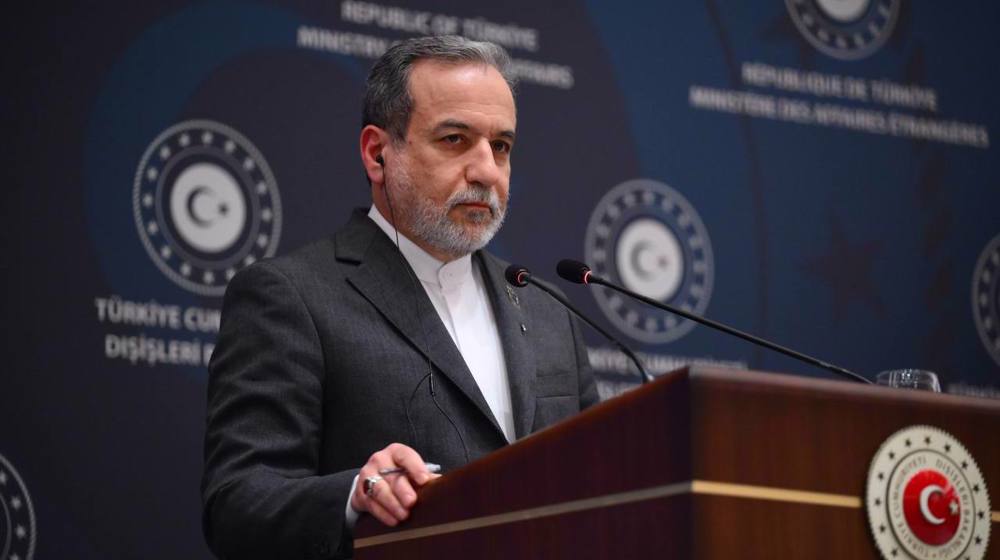Erdogan operating as a ‘conduit for terrorism’ in Syria: Analyst
Turkish President Recep Tayyip Erdogan has been operating as a sort of “loose cannon,” and a “conduit for terrorism” in Syria since tensions soared over Turkey’s military aggression on Syrian soil, says a political analyst, arguing that Ankara continues to support chaos and foreign-sponsored terrorists in the Arab country.
Syed Mohsin Abbas, a journalist and political commentator from London, made the remarks in a Friday edition of Press TV’s The Debate program while commenting on at least 33 Turkish soldiers killed in airstrikes by the Syrian government as it pushes to seize the northwestern province of Idlib — the last remaining territory held by foreign-backed militant groups in Syria.
Turkey, which is backing some of the militants groups in the embattled region, claimed it responded by hitting 200 Syrian government targets, "neutralizing" 309 soldiers.
Russia said Turkish troops were attacked in Idlib Province by Syrian forces while operating alongside militants groups.
“The Turkish military is illegally deployed in Syria; it’s supplied al-Qaeda terrorists with weapons and equipment; it’s embedded its own troops with al-Qaeda and attacked the Syrian army, however, when it got a real military response from the Syrian army, immediately started complaining to the international community" and accusing the Syrian government of aggression, Abbas told Press TV on Friday.
“In reality, Erdogan has been operating as a sort of loose cannon and a conduit for terrorism in Syria since day one. He was complicit in the pre-planning that was done by the British, the Americans, Turks as well as the Saudis; all of them were involved in basically planning this so-called civil war. They armed not only the rebels but actually very quickly armed al-Qaeda, Jabhat al-Nusrah, etc.,” he added.
The European Union has warned that the confrontation could descend into a major military conflict, with Russian President Vladimir Putin saying Turkish troops should not be positioned outside their observation posts in Idlib.
“It is those [Takfiri terrorist] Jabhat al-Nusrah and Hayat Tahrir al-Sham sorts of forces, which Turkey is now fighting side by side with, and they have lost 54 soldiers in the space of the last few weeks… those numbers will go up rapidly and if Erdogan, who has given a February deadline for the Syrian army to withdraw back to the old lines that they had, threatened that he does go ahead with this battle, I think he’s not going to be able to handle it on his own because he is up against Russian, Syrian and other very powerful war-hardened soldiers and I think it will be well-advised to think very carefully about his next moves,” Abbas underlined.
Asked how the events would unfold if Turkey’s deadline passed, Abbas said, “The fact is that Erdogan ultimately is pouring soldiers into that region. If he continues to do that, then the confrontation will definitely take a much more violent course, and Goodness knows how long it will take but it would mean more lives lost, more refugees, more torture and pain for the people of Syria, certainly.”
Idlib is home to several anti-government militant outfits receiving Turkish support. The Syrian government troops and their allied forces have been waging an offensive since December last year to liberate towns and villages from the militants in the province.
Turkey has been manning a number of observation posts in Idlib since September 2018, when it agreed in Sochi to cooperate with Russia and contain the situation in Syrian territory near the Turkish border.
However, the Hayat Tahrir al-Sham (HTS) Takfiri terrorist group, which is the dominant terror organization in the province, and other militant groups, along with those supported by Ankara, have been launching attacks on army and civilian targets from the buffer zone, where Turkish observation posts have been established to monitor the enforcement of the ceasefire.
Ankara has threatened to attack Syrian forces if they do not retreat from the vicinity of the Turkish observation posts.
Syria and Russia have condemned Turkey’s cross-border offensive into the Arab country, which was carried out to allegedly clear anti-Ankara Kurdish militants from a sliver of land bordering the Anatolian country.
'Turkey bearing economic brunt of refugee crisis'
Sami Hamdi, chief editor at The International Interest from Tunisia, was the other panelist invited to The Debate program on Press TV and said what Ankara was concerned about is the Syrian refugee crisis.
“Turkey’s issue in Idlib is not the tragedy of Idlib itself; it is the fact that Turkey is the country that is bearing the economic brunt of the refugee crisis. It is that Turkey is not receiving any support neither from Russia nor from the EU in terms of looking after these refugees and that to this day there has been no possible suggestion to Turkey on how to tackle that,” Hamdi said.
“Turkey wanted the safe zone in northern Syria in order to resettle all the refugees, the Russians were quiet and the US refused... Erdogan now believes he has no choice but to send troops in until the world can respond to his desires for help with dealing with those refugees,” he added.
Ankara has called for the imposition of a no-fly zone over Idlib and announced that it will no longer stop Syrian refugees from reaching Europe on Friday.
Turkey has repeatedly raised the prospects of loosening border controls on immigrants seeking to enter Europe when asking for incentives from European states.
Funding lapse set to trigger US Department of Homeland Security shutdown
Gaza’s civil defense says 8,000 bodies of genocide victims remain under rubble
Iran: Israeli violations main obstacle to peace, security in Syria
VIDEO | Trump-Netanyahu meeting
VIDEO | Palestine Action wins legal challenge
Indian author pulls out of Berlinale over jury’s ‘unconscionable’ refusal to comment on Gaza
Bangladesh Nationalist Party secures victory in general election
VIDEO | British High Court rules against ban on Palestine Action Group











 This makes it easy to access the Press TV website
This makes it easy to access the Press TV website